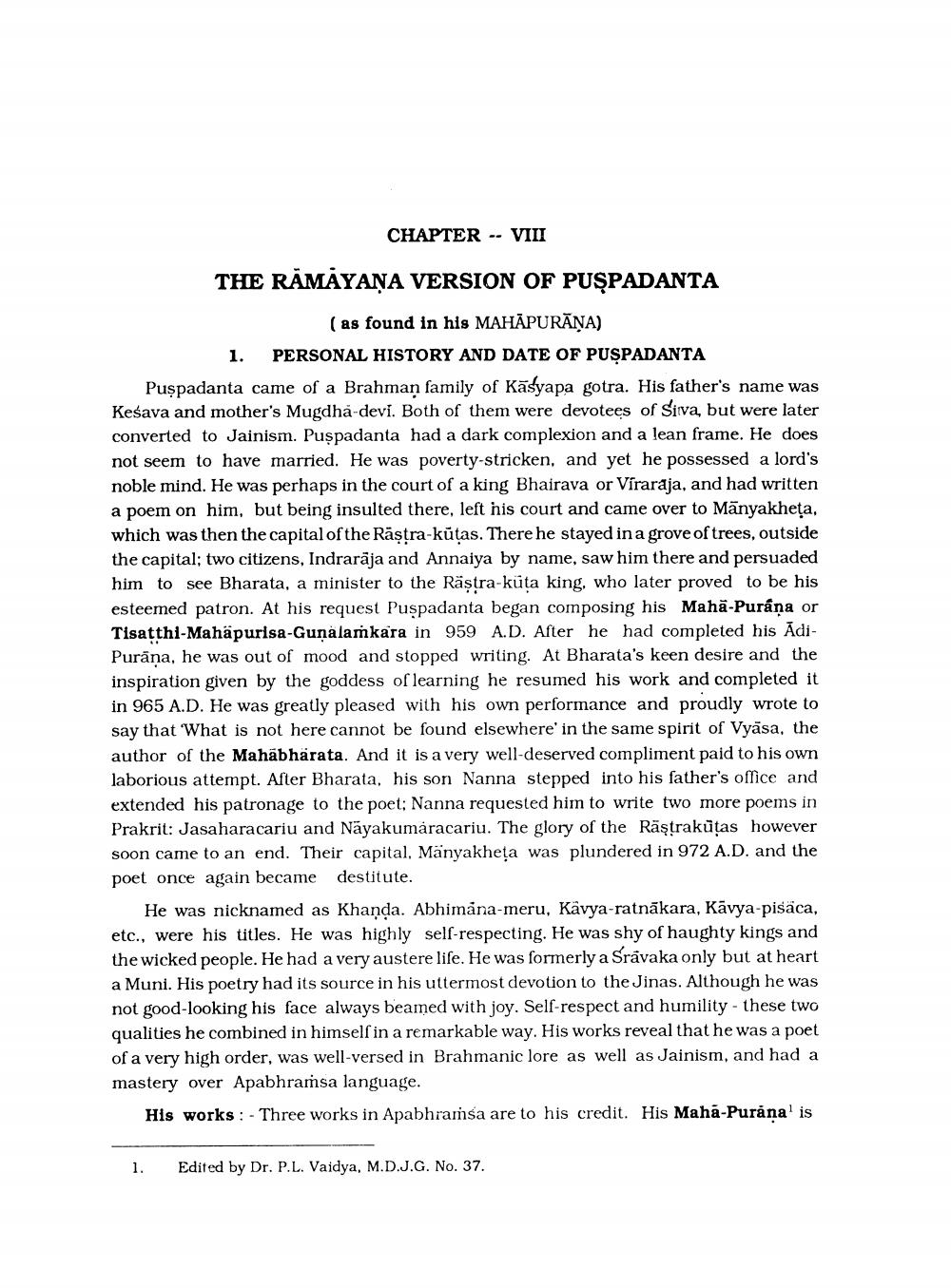________________
CHAPTER -- VIII
THE RĂMAYAŅA VERSION OF PUŞPADANTA
(as found in his MAHĀPURĀŅA) 1. PERSONAL HISTORY AND DATE OF PUSPADANTA Puşpadanta came of a Brahman family of Kāśyapa gotra. His father's name was Keśava and mother's Mugdha-devi. Both of them were devotees of Siva, but were later converted to Jainism. Puspadanta had a dark complexion and a lean frame. He does not seem to have married. He was poverty-stricken, and yet he possessed a lord's noble mind. He was perhaps in the court of a king Bhairava or Víraraja, and had written a poem on him, but being insulted there, left his court and came over to Mänyakheta, which was then the capital of the Rāştra-kūtas. There he stayed in a grove of trees, outside the capital; two citizens, Indrarāja and Annaiya by name, saw him there and persuaded him to see Bharata, a minister to the Rästra-kuta king, who later proved to be his esteemed patron. At his request Puşpadanta began composing his Maha-Purana or Tisatthi-Mahäpurisa-Gunalamkara in 959 A.D. After he had completed his ĀdiPurāņa, he was out of mood and stopped writing. At Bharata's keen desire and the inspiration given by the goddess of learning he resumed his work and completed it in 965 A.D. He was greatly pleased with his own performance and proudly wrote to say that 'What is not here cannot be found elsewhere in the same spirit of Vyäsa, the author of the Mahabharata. And it is a very well-deserved compliment paid to his own laborious attempt. After Bharata, his son Nanna stepped into his father's office and extended his patronage to the poet; Nanna requested him to write two more poems in Prakrit: Jasaharacariu and Nayakumaracariu. The glory of the Räştrakūtas however soon came to an end. Their capital, Mänyakheța was plundered in 972 A.D. and the poet once again became destitute.
He was nicknamed as Khanda. Abhimana-meru, Kavya-ratnākara, Kāvya-pisaca, etc., were his titles. He was highly self-respecting. He was shy of haughty kings and the wicked people. He had a very austere life. He was formerly a Sravaka only but at heart a Muni. His poetry had its source in his uttermost devotion to the Jinas. Although he was not good-looking his face always beamed with joy. Self-respect and humility - these two qualities he combined in himself in a remarkable way. His works reveal that he was a poet of a very high order, was well-versed in Brahmanic lore as well as Jainism, and had a mastery over Apabhramsa language.
His works : - Three works in Apabhramsa are to his credit. His Maha-Puránal is
1.
Edited by Dr. P.L. Vaidya, M.D.J.G. No. 37.




